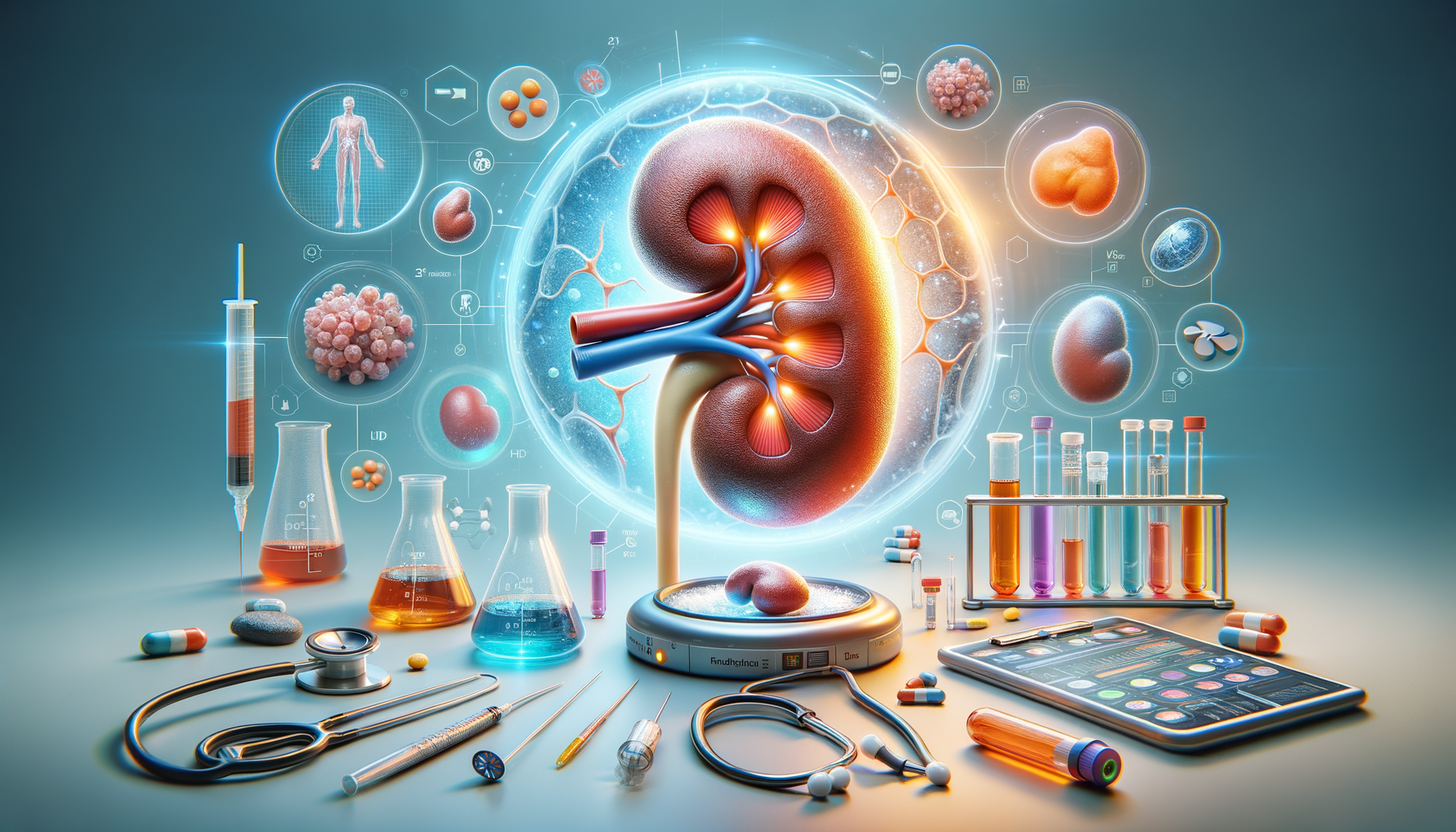Introduction to Chronic Kidney Disease
Chronic kidney disease (CKD) is a long-term condition characterized by a gradual loss of kidney function over time. As kidneys play a crucial role in filtering waste and excess fluids from the blood, their impairment can lead to significant health issues. With millions affected worldwide, CKD is a major public health concern. Understanding the latest advancements in its management is essential for patients, caregivers, and healthcare providers.
The kidneys are vital organs that perform several important functions, including regulating blood pressure, producing hormones, and balancing electrolytes. When kidney function diminishes, these processes are disrupted, leading to complications such as high blood pressure, anemia, and bone disease. Early detection and treatment are key to slowing the progression of CKD and improving quality of life.
Recent developments in managing CKD have focused on innovative therapies and lifestyle modifications. These advancements aim to preserve kidney function, manage symptoms, and reduce the risk of complications. By exploring these new approaches, individuals with CKD can take proactive steps towards maintaining their health and well-being.
Innovative Medical Treatments
Medical treatments for chronic kidney disease have evolved significantly over the years. Traditionally, management involved controlling symptoms and slowing disease progression through medications and lifestyle changes. However, recent innovations have introduced new therapeutic options that offer hope for improved outcomes.
One of the most promising developments is the use of SGLT2 inhibitors. Originally developed for diabetes management, these medications have shown effectiveness in reducing the risk of kidney disease progression. By lowering blood sugar levels and reducing blood pressure, SGLT2 inhibitors help protect kidney function and improve overall cardiovascular health.
Another breakthrough is the introduction of non-steroidal mineralocorticoid receptor antagonists. These drugs have demonstrated potential in reducing inflammation and fibrosis in the kidneys, offering a novel approach to managing CKD. Clinical trials have shown promising results, with patients experiencing slower disease progression and improved kidney function.
In addition to pharmaceutical advancements, regenerative medicine is gaining traction in CKD treatment. Researchers are exploring the use of stem cells to repair damaged kidney tissue and restore function. While still in the experimental stage, this approach holds promise for the future of kidney disease management.
Lifestyle Modifications for Kidney Health
Alongside medical treatments, lifestyle modifications play a crucial role in managing chronic kidney disease. Adopting healthy habits can help slow disease progression and improve overall well-being. Key areas of focus include diet, exercise, and stress management.
Dietary changes are essential for kidney health. Individuals with CKD are often advised to limit their intake of sodium, phosphorus, and potassium. A diet rich in fruits, vegetables, and whole grains can help maintain healthy blood pressure and reduce the risk of complications. Additionally, staying hydrated is crucial, but fluid intake should be monitored to avoid overloading the kidneys.
Regular physical activity is another important aspect of CKD management. Exercise helps control blood pressure, maintain a healthy weight, and improve cardiovascular health. Activities such as walking, cycling, and swimming are recommended for their low impact on the joints and kidneys.
Stress management techniques, such as meditation and yoga, can also benefit individuals with CKD. Chronic stress can negatively impact kidney function, so finding ways to relax and unwind is vital for maintaining health.
Importance of Early Detection and Monitoring
Early detection and regular monitoring are critical components of managing chronic kidney disease. Identifying the condition in its early stages allows for timely intervention, potentially slowing progression and preventing complications.
Screening for CKD typically involves blood and urine tests to assess kidney function. The glomerular filtration rate (GFR) is a key indicator of kidney health, with lower values suggesting impaired function. Regular monitoring of GFR and other markers helps track disease progression and guide treatment decisions.
Individuals at higher risk of developing CKD, such as those with diabetes or hypertension, should undergo regular screenings. Early intervention can include lifestyle modifications and medications to control blood pressure and blood sugar levels, reducing the risk of kidney damage.
Healthcare providers play a crucial role in educating patients about the importance of regular monitoring and adherence to treatment plans. By staying informed and proactive, individuals with CKD can take control of their health and improve their quality of life.
Conclusion: Embracing New Approaches
As chronic kidney disease continues to impact millions worldwide, embracing new approaches to its management is essential. Advances in medical treatments, lifestyle modifications, and early detection strategies offer hope for improved outcomes and quality of life for those affected by CKD.
By staying informed about the latest developments and working closely with healthcare providers, individuals with CKD can take proactive steps to protect their kidney health. Whether through innovative medications, dietary changes, or regular monitoring, there are numerous ways to support kidney function and enhance well-being.
As research continues to uncover new insights into CKD, the future looks promising for those living with this condition. By embracing these advancements, individuals can look forward to a healthier, more fulfilling life.




Leave a Reply